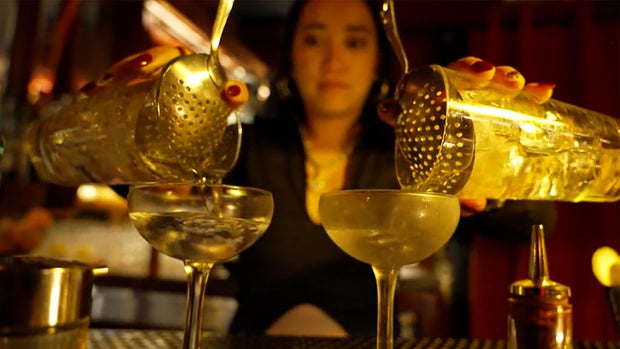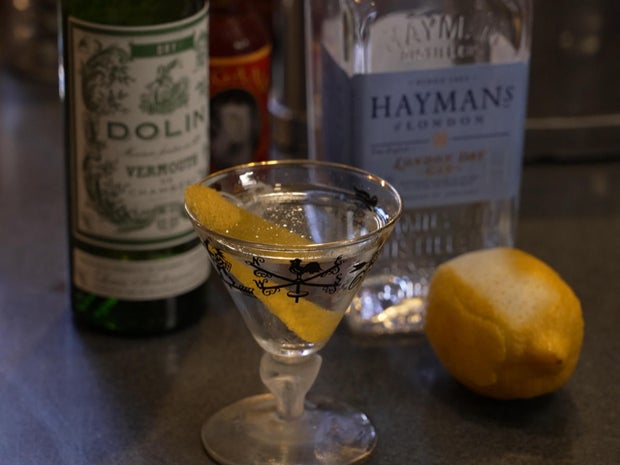CBS News
New York governor deploys National Guard to subways following string of violent attacks

Watch CBS News
Be the first to know
Get browser notifications for breaking news, live events, and exclusive reporting.
CBS News
What makes a martini a martini?

Nowadays, what makes a martini a martini? Robert Simonson, who wrote a book about the martini, said, “It’s funny: it’s strict and loose at the same time.”
Ten Speed Press
Everyone seems to have an opinion about the cocktail: “Ingredients, proportions, garnishes – it’s all subject to debate,” Simonson said. “I’m a purist. I would think it needs to be gin and vermouth. But I’m willing to bend and say, ‘Okay, vodka and vermouth as well.’ [However,] if there’s no vermouth in there, I don’t know how you can call it a cocktail.”
Simonson says the martini was probably named after a vermouth company. It was invented in America in the 1870s or ’80s when bartenders mixed gin with vermouth, a fortified wine made with herbs and spices. “It’s a very big player in cocktail history,” he said.
In the early 20th century, the “very-dry” martini became very-popular: Ice cold gin or vodka, garnished with a lemon twist, or an olive, or an onion, but only a little vermouth (or maybe not even a little).
Samantha Casuga, the head bartender at Temple Bar in New York City, says the reason why many people might not want vermouth in their martini is because, for years, vermouth was stored improperly. “It should be in the fridge,” she said.
CBS News
Casuga’s classic martini is two parts gin, one part vermouth, with a twist of lemon. She suggests that you probably shouldn’t order it the way James Bond does – shaken, not stirred. Casuga says she’s always stirring, but some people like the show behind the bar when a bartender shakes their cocktail. “Definitely, people love a good shake,” she said.
People also love to have a martini made just the way they want it. But Casuga understands why they might be so specific: “To have your own preferences, not only listened to and then executed, is, like, that’s luxury itself.”
Writer Robert Simonson says that a martini can also add a little luxury to your Thanksgiving. “It actually makes very good sense for Thanksgiving,” he said. “It will whet your appetite for the meal to come.
“There are very few American inventions more American than the martini. So, an American holiday, American drink.”
CBS News
For more info:
Story produced by Mary Raffalli. Editor: Remington Korper.
“Sunday Morning” 2024 “Food Issue” recipe index
Delicious menu suggestions from top chefs, cookbook authors, food writers, restaurateurs, and the editors of Food & Wine magazine.
CBS News
NATURE: Turkeys in South Dakota

Watch CBS News
Be the first to know
Get browser notifications for breaking news, live events, and exclusive reporting.
CBS News
An Italian masterpiece: Cacio e pepe

Watch CBS News
Be the first to know
Get browser notifications for breaking news, live events, and exclusive reporting.










